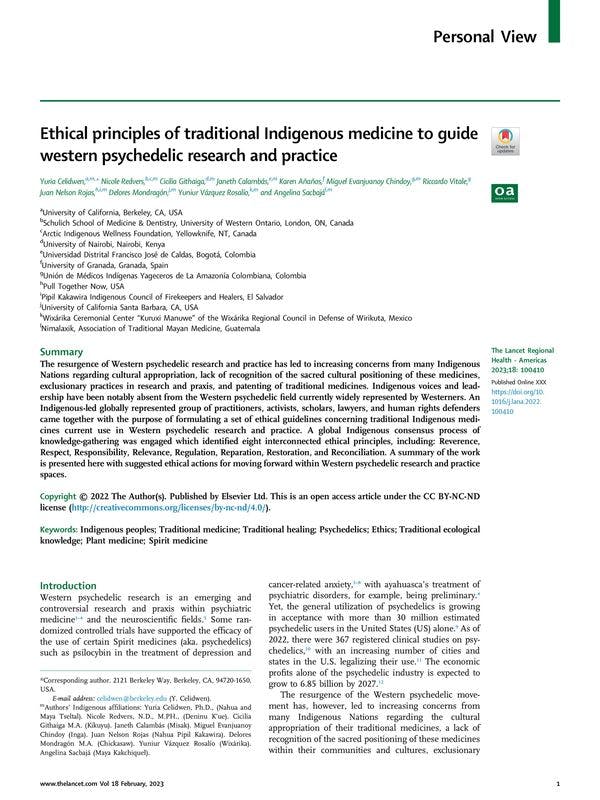Ethical principles of traditional Indigenous medicine to guide western psychedelic research and practice
By Yuria Celidwen, Nicole Redvers, Cicilia Githaiga, Janeth Calambás, Karen Añaños, Miguel Evanjuanoy Chindoy, Riccardo Vitale, Juan Nelson Rojas, Delores Mondragón, Yuniur Vázquez Rosalío, Angelina Sacbajá
Summary
The resurgence of Western psychedelic research and practice has led to increasing concerns from many Indigenous Nations regarding cultural appropriation, lack of recognition of the sacred cultural positioning of these medicines, exclusionary practices in research and praxis, and patenting of traditional medicines. Indigenous voices and leadership have been notably absent from the Western psychedelic field currently widely represented by Westerners. An Indigenous-led globally represented group of practitioners, activists, scholars, lawyers, and human rights defenders came together with the purpose of formulating a set of ethical guidelines concerning traditional Indigenous medicines current use in Western psychedelic research and practice. A global Indigenous consensus process of knowledge-gathering was engaged which identified eight interconnected ethical principles, including: Reverence, Respect, Responsibility, Relevance, Regulation, Reparation, Restoration, and Reconciliation. A summary of the work is presented here with suggested ethical actions for moving forward within Western psychedelic research and practice spaces.
